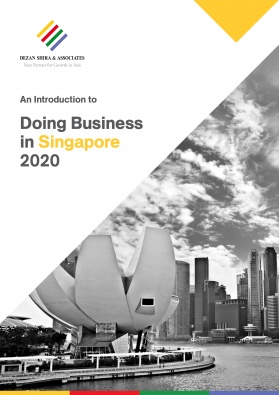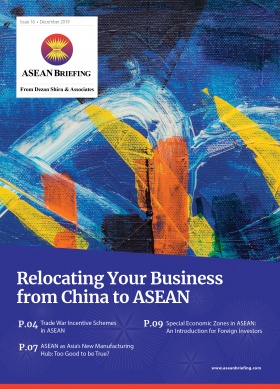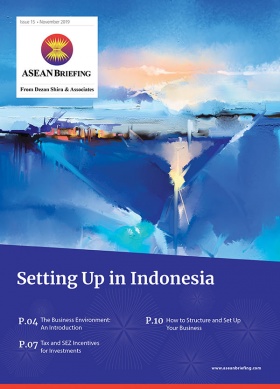Indonesia Issues Second Stimulus Package to Dampen COVID-19 Impact
- On March 13, 2020, the Indonesian government issued its second emergency stimulus package worth US$8 billion.
- The package provides a range of fiscal and non-fiscal incentives in addition to a special stimulus for small and medium-sized (SMEs) businesses.
- The fiscal incentives are primarily for the manufacturing sector and include a reduction in corporate and personal income tax
- Non-fiscal incentives aim to ease import and export activities.
On March 13, 2020, the Indonesian government issued its second emergency stimulus package worth US$8 billion as it seeks to protect the economy from the impact of the coronavirus (COVID-19) outbreak.
The latest package represents 0.8 percent of the GDP and provides a range of fiscal and non-fiscal incentives in addition to a special stimulus for small and medium-sized (SMEs) businesses.
This follows a US$725 million stimulus package announced in February 2020, which provided fiscal incentives to support the country’s tourism, aviation, and property industries. The package also allocated US$324 million for low-income households.Like the rest of ASEAN, Indonesia’s economy has been negatively impacted by the epidemic, and the government has estimated economic growth at 2.1 percent for 2020.
Investors should seek help from qualified local advisors to better understand how to benefit from these incentives.
Fiscal incentives
The latest package provides four types of fiscal incentives primarily for the manufacturing industry in the form of tax breaks worth US$1.4 billion. With this sector sourcing 20 to 50 percent of raw materials from China, the incentives are designed to provide businesses breathing space during this period of supply chain disruption.
Reduction of income tax
The government will reduce income tax by 30 percent for businesses in 19 selected manufacturing industries for the next six months. These are:
- Chemicals and chemical products;
- Electrical equipment;
- Motor vehicle, trailer, and semi-trailer manufacturers;
- The pharmaceutical industry, medicinal chemistry, traditional medicine;
- Basic metals;
- Transport equipment manufacturing;
- Paper and paper products;
- Food industry;
- Computers, electronic and optical goods;
- Machine industry;
- Textiles;
- Rubber and plastic goods;
- Furniture;
- Printing and recording industry;
- Non-metal mining;
- Beverage industry;
- Non-machinery metal industry;
- Finished material industry; and
- Leather goods and leather industry for footwear.
Relaxation of VAT refunds
The government will also relax value-added tax (VAT) refunds for these 19 industries for the next six months.
Deferral of import tax payments
There will be a deferral on import tax payments for businesses in the 19 industries mentioned above, for the next six months.
Income tax exemption
There is a six-month income tax exemption for workers in the manufacturing sector. Only workers with an annual income below 200 million rupiah (US$13,000) are eligible for this incentive.
Non-fiscal incentives
The government has also prepared several types of non-fiscal incentives aimed to ease import and export activities. These are:
Simplification of import and export activities
The government will simplify and accelerate import and export procedures by reducing the ‘Restriction and Prohibition’ (Lartas) measures. Under Lartas, certain products are either restricted from being imported or exported or are prohibited from being imported or exported.
This will mean scrapping some 749 Harmonization Codes (HS) products, consisting of 443 HS codes for fish and fish products, and 306 HS codes for forestry and forest products.
Goods that are subject to Lartas are those that have a negative influence on one of the following categories:
- National security and defense;
- Human health;
- Culture and heritage;
- Intellectual property;
- Industry, and trade; and
- Human health.
Simplification of import process for raw materials
The Lartas measures have also been simplified and accelerated to help businesses import raw materials. This stimulus is for manufacturers of steel products and its derivatives in addition to producers of strategic food items such as sugar, flour, and salt.
Assisting reputable traders
The government will assist and quickly approve the license applications for the import and export of goods classified as restricted for ‘reputable traders’. These are businesses that have a good history of complying with government regulations. The government has named 735 companies as being ‘reputable’ and thus eligible for this incentive.
Further, these companies will no longer require the mandatory surveyor’s report for selected goods. The Ministry of Trade has mandated that certain goods have to be inspected prior to export by a registered surveyor to demonstrate they are compliant with national regulations. This applies to products such as:
- Iron and steel;
- Oil and Gas;
- Ceramics;
- Cellphones;
- Sugar;
- Food and beverages;
- Electronics;
- Horticultural products;
- Nitro-cellulose;
- Toys;
- Tires;
- Salt;
- Textiles and textile products;
- Tobacco;
- Sugar;
- Rice;
- Precursor goods (for drug production); and
- Herbal medicine.
Accelerate the implementation of the National Logistic Ecosystem
The government will accelerate the implementation of the National Logistic Ecosystem (NLE). The NLE is an electronic system established by the Directorate General of Customs and Excise to integrate the logistics community in the supply sector.
Through this, all logistic platforms, such as warehousing, shipping, and forwarders can access and share information. This enables importers and exporters to choose and check the price and availability of trucks, vessels, and warehouses, among others, under one application.
Assisting SMEs
The rules governing loan restructuring for SMEs will be eased allowing local banks to restructure loans regardless of credit ceiling limits. Additionally, SMEs are eligible for loans of up to 10 billion rupiah (US$655,000) if they have a good credit history and have the capacity to pay back the loan.
About Us
ASEAN Briefing is produced by Dezan Shira & Associates. The firm assists foreign investors throughout Asia and maintains offices throughout ASEAN, including in Singapore, Hanoi, Ho Chi Minh City and Jakarta. Please contact us at asia@dezshira.com or visit our website at www.dezshira.com
- Previous Article Vietnam to Issue Incentives to Counter COVID-19 Impact
- Next Article Malaysia Issues Stimulus Package to Combat COVID-19 Impact







